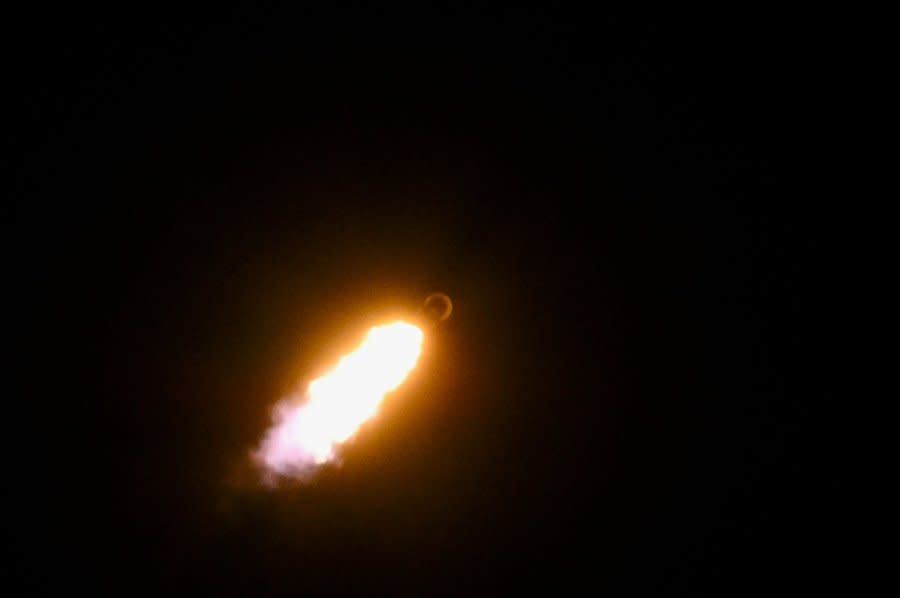SpaceX launches South Korea spy satellite

Dec. 1 (UPI) -- SpaceX on Friday launched a South Korean spy Satellite Friday afternoon after North Korea claimed it launched one of its own late last month.
The Falcon 9 rocket launched from Vandenberg Space Force Base in California at 1:20 p.m. EST carrying the spy satellite for South Korea's Agency for Defense Development and its 425 Project.
It was also carrying 24 other spacecraft including South Korea's Space BD's ISL48, SITAEL's microHETSat, D-Orbit's ION SCV Daring Diego, York Space Systems' Bane and PlanetIQ's GNOMES-4.
The launch comes on the heels of North Korea's claims that it successfully launched its spy satellite on Nov. 21.
The United States and several other countries condemned North Korea for the launch. The U.S. National Security Council spokesperson Adrienne Watson said the launch using ballistic missile technology was "a brazen violation of multiple U.N. Security Council resolutions,"
"[The North Korea launch] risks destabilizing the security situation in the region and beyond," she added.
Four synthetic aperture radar satellites were developed by Thales Alenia Space in partnership with Aerospace Industries, LTD. and Hanwha Systems Corporation.
South Korea announced plans to launch the satellite on Nov. 6 after reports that North Korea was preparing for its launch as Joints Chiefs of Staff spokesman Lee Sung-joon said at the time that U.S. and South Korean agencies were monitoring North Korea with "the possibility of various provocations in mind, including on the occasion" of missile anniversaries like "Missile Industry Day" which North Korea declared on Nov. 18.
The launch was also notable for SpaceX as it marked the 17th flight of the first stage booster used in the mission.
SpaceX said the first stage landed successfully, for its 250th landing of a first stage booster.

